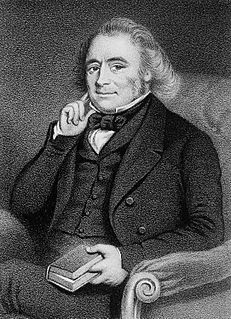A Quote by William Shakespeare
Thou dost conspire against thy friend, Iago,
If thou but think'st him wronged, and mak'st his ear
A stranger to thy thoughts.
Related Quotes
Deliberate long before thou consecrate a friend, and when thy impartial justice concludes him worthy of thy bosom, receive him joyfully, and entertain him wisely; impart thy secrets boldly, and mingle thy thoughts with his: he is thy very self; and use him so; if thou firmly think him faithful, thou makest him so.
A God must have a God for company.
And lo! thou hast the Son-God to thy friend.
Thou honour'st his obedience, he thy law.
Into thy secret life-will he doth see;
Thou fold'st him round in live love perfectly-
One two, without beginning, without end;
In love, life, strength, and truth, perfect without a flaw.
If any friend desire thee to be his surety, give him a part of what thou hast to spare; if he press thee further, he is not thy friend at all, for friendship rather chooseth harm to itself than offereth it. If thou be bound for a stranger, thou art a fool; if for a merchant, thou puttest thy estate to learn to swim.
Is it thy will, thy image should keep open My heavy eyelids to the weary night? Dost thou desire my slumbers should be broken, While shadows like to thee do mock my sight? Is it thy spirit that thou send'st from thee So far from home into my deeds to pry, To find out shames and idle hours in me, The scope and tenor of thy jealousy? O, no! thy love, though much, is not so great: It is my love that keeps mine eye awake: Mine own true love that doth my rest defeat, To play the watchman ever for thy sake: For thee watch I, whilst thou dost wake elsewhere, From me far off, with others all too near.
Look what thy soul holds dear, imagine it
To lie that way thou goest, not whence thou com'st.
Suppose the singing birds musicians,
The grass whereon thou tread'st the presence strewed,
The flowers fair ladies, and thy steps no more
Than a delight measure or a dance;
For gnarling sorrow hath less power to bite
The man that mocks at it and sets it light.
What thou lovest well remains, the rest is dross What thou lov'st well shall not be reft from thee What thou lov'st well is thy true heritage Whose world, or mine or theirs or is it of none? First came the seen, then thus the palpable Elysium, though it were in the halls of hell. What thou lovest well is thy true heritage.
The worldly wisdom of the foolish man Is like a sieve, that does alone retain The grosser substance of the worthless bran: But thou, my soul, let thy brave thoughts disdain So coarse a purchase: O be thou a fan To purge the chaff, and keep the winnow'd grain: Make clean thy thoughts, and dress thy mixt desires: Thou art Heav'n's tasker, and thy God requires The purest of thy flow'r, as well as of thy fires.
Why dost thou heap up wealth, which thou must quit,
Or what is worse, be left by it?
Why dost thou load thyself when thou 'rt to fly,
Oh, man! ordain'd to die?
Why dost thou build up stately rooms on high,
Thou who art under ground to lie?
Thou sow'st and plantest, but no fruit must see,
For death, alas! is reaping thee.































